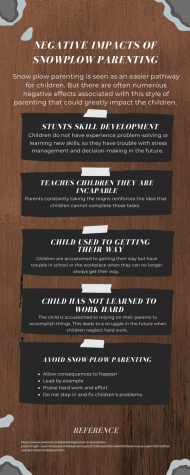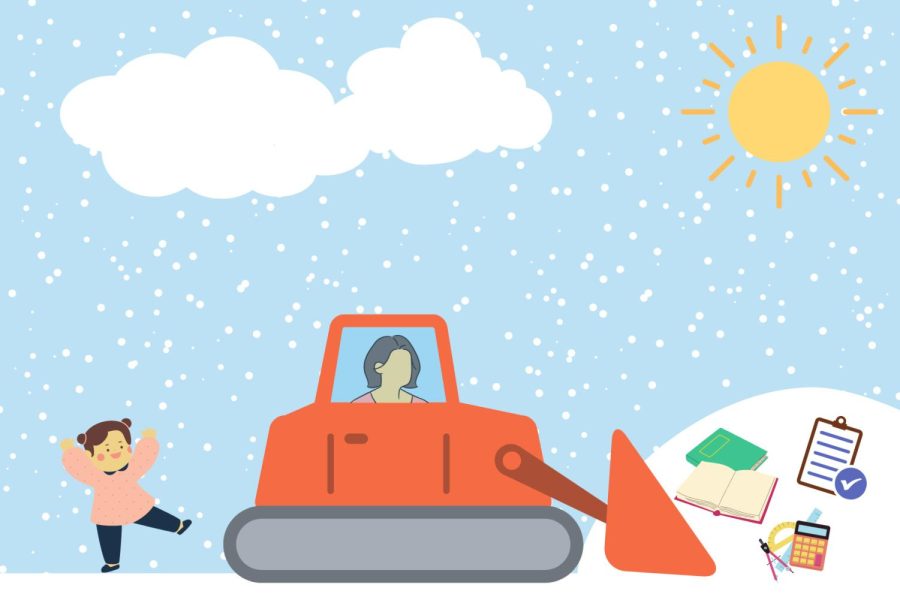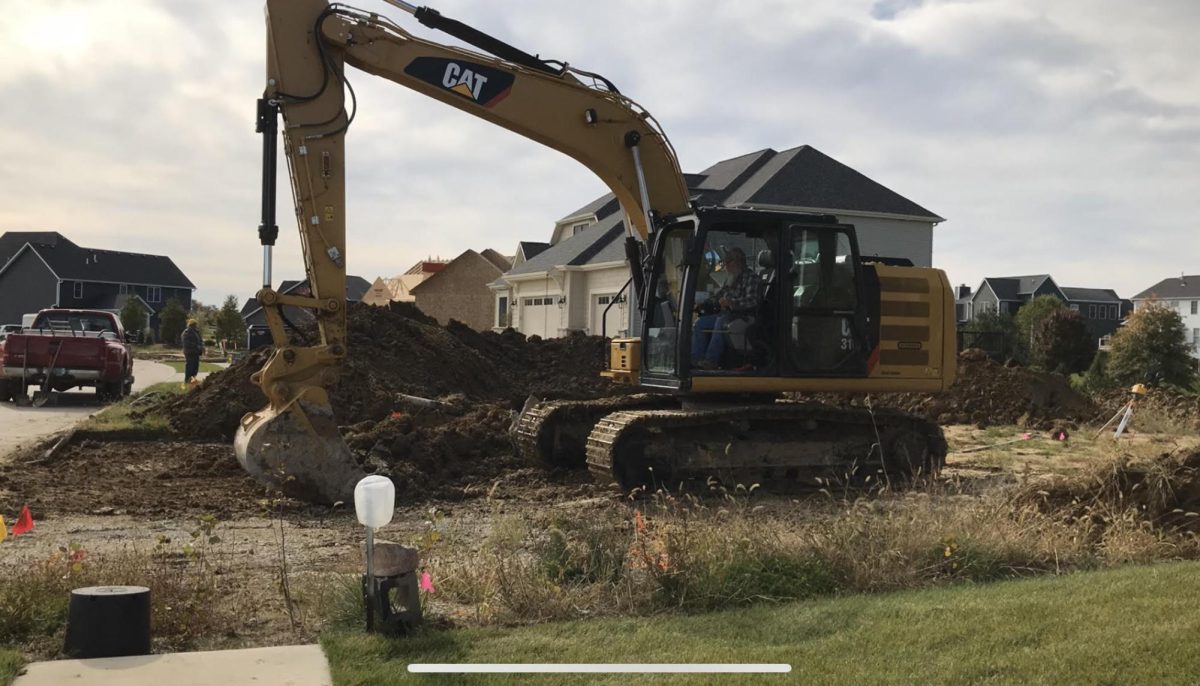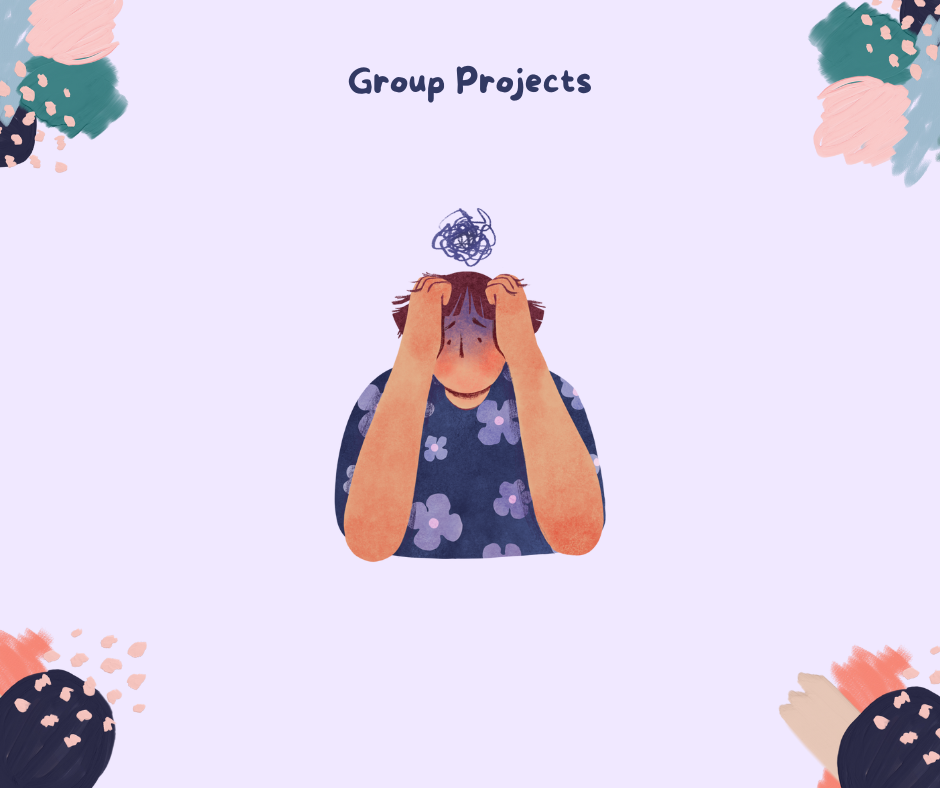Many can attest to the seemingly universal experience of interacting with an individual who always assumes they are right or always assumes things will go their way. These interactions can be extremely frustrating as the individual seems to lack empathy and character. These unsavory characteristics might be the result of snow plow parenting.
Snow plow parenting (also known as lawnmower parenting or bulldozer parenting) is a parenting style seeking to eliminate all obstacles and barricades from a child’s path in an attempt to guarantee success and eliminate failure, pain and discomfort from the child’s life. Parents of this nature work to do everything in their power to ensure their child does not face any problems or struggles.
A snowplow physically pushes away all obstacles, mimicking the extent to which parents go to clear the path for their children. This style of parenting is often confused with helicopter parenting, in which parents hover around their children ready to rescue them from any problems. Snowplow parents fully eliminate the obstacles for their children.
Common signatures of snowplow parents include “helping” children with assignments or projects but completing them on their own, getting overly involved in a student’s grades and contacting teachers on the student’s behalf, calling college students to wake them up for class or even scheduling doctor’s appointments and dental checkups for their adult children.
Numerous parents feel an obligation to raise their children in this fashion because it seems to ensure success and a happy, stable future for their children. Another common justification is that it is faster and easier for parents to take care of their children’s problems.

Parents might also be attempting to vicariously live through their children, ensuring some success they did not have. Of course parents are more experienced than their children; they have already experienced their fair share of hardships and obstacles and surely have some regrets or missed opportunities. Snowplow parenting ensures that these regrets do not get in the way of children’s success. Parents have their kids’ best interests at heart and find this to be the best way to protect their children, though this style of parenting can lead to severe detriments in the future.
Huge scandals have been unearthed regarding snow plow parents in the college admissions process, a monumental step in a student’s life. In early March, 2019, many wealthy parents bribed or paid a large donation to the university of which they believed would be a best fit for their student in order to guarantee an application. This is extremely invasive in a child’s growth and development as the admissions process is a valuable and pedantic step every student should endure. It is also extremely unfair to other students applying to these universities as their hard work is traded out for funds. Yet these parents still seemed to believe they were doing the best for their children.
Junior Eliana Moore expressed the irony of snowplow parents’ intentions. “Snowplow parents just have a way of getting in the way of their own child’s learning path and success,” she stated. Though snowplow parents have good intentions, they are inhibiting the natural learning order for their children.
Pleasant Valley English teacher Lynne Lundberg explained the cognitive dissonance in this style of parenting. “It is a struggle because parents want the best for their children and they think they know what that best thing is,” she stated. The best thing in the eyes of a parent is a happy, comforting childhood. But the future, and skill development is often left out. Lundberg is an experienced parent, with two kids of her own and hundreds of students to mentor. Throughout her career, she has noticed many negative effects of snow plow parenting.
These negative effects stem from the lack of exposure to struggle and failure in these youths’ lives. When children do not experience the disappointments and motivations of failure, the development of necessary skills to live their own life without dependency are severely stunted. Lundberg stated, “Struggle is a part of life. We have to face struggle in order to develop our abilities, and also our resilience, but maybe most importantly our character.”
“If we don’t face struggle, then we are not going to be ready for the challenges of life,” she continued.
Children who are sheltered from failure and struggle in their early years do not develop the skills necessary to lead a fulfilling and successful life. They lack problem solving skills, empathy for others and confidence in their own abilities. Children have no freedom to make mistakes and explore the extent of their abilities, so as adults they remain confined and naive to the difficulties of the real world.
Moore articulated the dangers of this naivety. “There is a difference between helping your kid and making sure they never have any hardship. Hardship is to their benefit. If they are always being protected from the outside world, then when they finally get there, they won’t survive.”
But how might parents lay off on this overbearing parenting style when it seems like the best for their children at the time?
It can start with parents allowing consequences to happen. To allow their students to learn, fail and succeed on their own. Lundberg offered advice for parents stuck in this form of child-raising.
“The most important thing is to trust that your children are going to want to do ok for their own sake, and that it doesn’t have to be about the parents. Maybe start with a few things that you can maybe stand back from,” she stated. “You don’t need to follow up with what the coach says at practice, just let the coach coach the kid. You don’t need to check grades, often if at all. Just take a break from that and let kids take charge of their own education.”
Moore also suggests to parents that treating each child as a complete and whole being rather than a puppet benign manipulated for an end role can ease off this parenting style. “Each kid is going to have their own gift. So instead of treating your kid as someone who needs a certain skill, maybe let them grow into whatever area they have a talent in. And you can guide that talent, sure. But I wouldn’t try to make something happen for them. They have their own life,” she stated.
By allowing children to experience failure and success, struggle and ease, they have a better understanding of not only their capabilities but of how the world will treat them as adults. Rather than sheltering kids, lead by example. Demonstrate proper ways of responding to failure and positive ways of coping with stress and struggle. By allowing children more freedom, they will develop more skills and eventually face success on their own.










